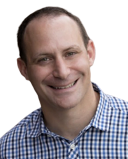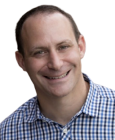OCD
Does the OCD Label Fit All of You?
Camila Cabello shows why the obsessive-compulsive disorder (OCD) label doesn't fit her experience.
Updated May 23, 2024 Reviewed by Michelle Quirk
Key points
- The lived experience of OCD contains both positive and negative elements worth integrating.
- Befriending aspects of your obsessional personality doesn't negate your treatment.
- It's completely valid to see OCD's negative sides and recognize that certain aspects are just a "part of you."

Camila Cabello is on to something about obsessive-compulsive disorder (OCD). In a recent interview with Dax Shepard on his Armchair Expert podcast, she confessed that she and her therapist "don't even call it OCD, we call it obsessionality...something about OCD is triggering for me for some reason."
Wait a minute. Isn't this tone-deaf? Don't people suffer with OCD? Shouldn't Cabello embrace her diagnosis and the treatment that takes an average of 14 to 17 years to find?
Not necessarily. Cabello is speaking to a more nuanced take.
OCD isn't only a relentless thief of time and headspace; it's part of your personality and identity, too. Being so tuned in, especially to fears, can be harrowing, but with OCD, you're aware of lots of other interesting things, too. OCD isn't just a foreign invader, it's also a part of your home country, and Cabello seems to get that.
But back to those other valuable qualities found within OCD. The person with OCD may have an exquisitely imaginative and creative mind and a profoundly open and generous heart. It offers something that many, like Cabello, don't want to easily give up. Nor should they!
I get the detractors of Cabello's statements. But is she minimizing OCD's pain or glamourizing it? I doubt it.
I think Cabello sees the distinctions between the truly negative and problematic stuff within OCD and embraces and leans into the positive and helpful aspects within it, too. Since obsessionality is a part of her, she befriends it. She doesn't just pathologize it. That's a complex and mature act of psychological integration, and I give credit to this 27-year-old singer for showcasing something that could be massively helpful for others out there with OCD.
If you struggle with OCD, it's completely valid to see its negative sides and recognize that certain aspects are just a "part of you." It's also legitimate to see positive sides and strengths within your OCD while you notice the ways it can hurt you, too.
There's no contradiction here; only the wonderful nuance and complexity that makes us all human. It's a both/and position that might be even more freeing and helpful in your OCD recovery. And it's perfectly in line with Shepard's description of Armchair Expert as a podcast that "celebrates the messiness of being human."
Again, neither I, nor, I think, Cabello, is saying that OCD doesn't hurt. Cabello is the first to recognize some of the "textbook ways" she had OCD as a child, signaling that she gets the truly difficult sides of OCD.
Listen in on her greatest hits of early OCD moments:
"Hug my parents for 11 seconds or else they'll die, pray to God then kiss your fingers or else you'll have cancer ... I had one time where I didn't have my period for a year and then I thought I was like the Virgin Mary ... and then I'd pray every night for God to take away the new Jesus Christ that was being born in me."
Cabello is able to stare down these issues now and laugh at them with the full perspective of OCD as something much bigger than just a disorder. As she summed it up, "There are some things that don't fit into neatly labelled boxes. Sometimes, it is, you're just being obsessive, it's not necessarily: obsessive-compulsive disorder [spoken in a robot voice]."
And perhaps embracing the hard-to-put-your-finger-on slipperiness of the OCD experience might teach us all more about the good, the bad, the ugly, and even the momentarily beautiful found within and beyond the limits of the OCD label.


